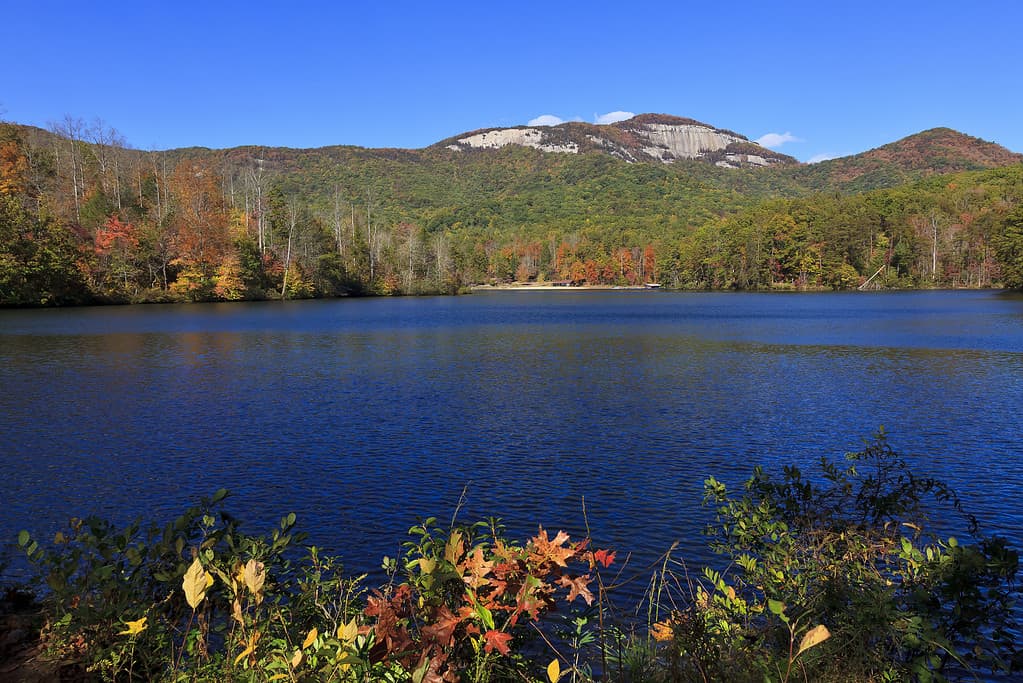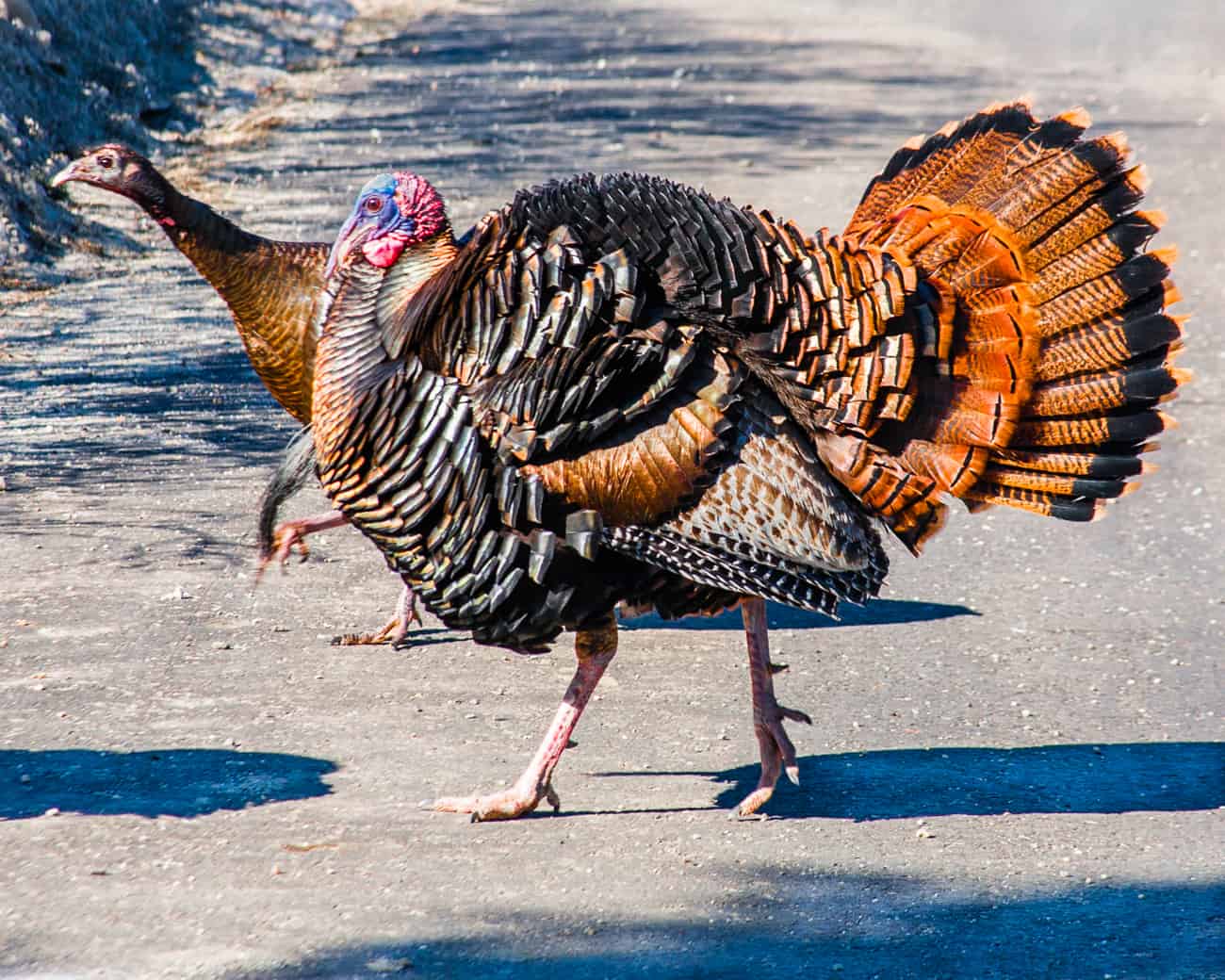South Carolina has many rural areas to explore, making it a great place for turkey hunting. However, turkey hunting in South Carolina involves following several regulations and rules. It’s important to keep these in mind when hunting, or you may potentially break the law.
Like most states, South Carolina has very specific season timing. There are also bag limits, which limit the number of turkeys you may take.
Below, we’ll discuss the basics. However, it’s important to stay on the lookout for updates, as many of these regulations can be changed all the time.
Does South Carolina Have Good Turkey Hunting?
If you approach it properly, South Carolina does have good turkey hunting. The state has a healthy population of turkeys, and there are many places you can go to hunt them. The spring turkey season is the most popular time to hunt turkeys, as they tend to be most active and noisy during this time.
However, unlike some other nearby states, South Carolina also has a full fall season you can take advantage of.
The state offers a range of habitats, including forests and fields. These provide the turkeys with a range of food sources and several nesting areas.
The weather in South Carolina is generally mild during the spring and fall, which makes it a comfortable time to be outdoors hunting turkeys.
Turkey Season Timing

Pinnacle Lake at Table Rock State Park in Pickens, South Carolina in the fall is a beautiful place to hunt turkeys.
©JillLang/iStock via Getty Images
Turkey season in South Carolina is divided into two different seasons: spring and fall. It is further divided into two game zones, which have different dates. Usually, game zones 1 & 2 have the same date, while zones 3 & 4 have a slightly later date.
The reason for the two-tiered season is to allow for more gobbling in Game Zones 1 and 2, where the turkey population is higher. The peak of gobbling in South Carolina is typically around April 1, so the season in Game Zones 1 and 2 is designed to allow hunters to take advantage of this time.
There is also a fall turkey season in South Carolina in November. This season is statewide, but it isn’t quite as popular as spring season.
Sunday hunting is allowed on private land but not on WMAs.
License Requirements and Costs
To hunt turkeys in South Carolina, you do need to have a license. There are two types of licenses: resident and non-resident. The resident license is the cheapest, but you do have to prove residency in the state. The non-resident license is a bit more expensive, but it’s required for non-residents.
You must also purchase a turkey tag. While these used to be free, they no longer are. These tags are purchased in sets. The prices are different for residents and non-residents. As you might imagine, prices for non-residents are much more expensive.
A big game permit is also required. This permit allows you to hunt deer, bear, and turkey. This license is an added cost that you should consider, but it isn’t usually that expensive.
You can purchase hunting licenses and permits online at the South Carolina Department of Natural Resources website or at any authorized license vendor.
To purchase any of these licenses, you must be at least 16 years of age. You must have a valid hunting license and turkey tags when hunting, so be sure to carry these with you.
Bag Limits in South Carolina
The bag limits in South Carolina are comparable to other nearby states. They do differ depending on whether you’re a resident or not, though. Residents may take 3 gobblers per season but no more than one daily.
You may also not take more than one on private land and WMAs in Game Zone 1 & 2. No more than one from March 22-31 on private land in Game Zone 3 and 4.
Non-residents can only take 2 gobblers per season. You must follow the same restrictions as above, though.
You may only hunt bearded gobblers, as we’ve explained here. Bearded hens may not be hunted, only true males.
You must tag all turkeys before you leave the hunting area. The directions to tag your turkey are on each tag, which you must purchase, as described above. Keep the hunted turkeys in your possession until you’ve properly tagged them.
You must then report the harvested turkeys to the South Carolina Department of Natural Resources within 10 days of harvest.
Other Regulations in South Carolina
There are also other state-specific regulations you need to keep in mind. For instance, there are only some legal weapons you’re allowed to use to hunt turkeys. These include shotguns, muzzleloading shotguns, bows, and crossbows. All other weapons or methods are prohibited.
You can use natural turkey calls and electronic calls when turkey hunting in South Carolina. However, certain types of calls (like those for crows and owls) are prohibited.
Turkey hunting may only occur 30 minutes before sunrise to 30 minutes after sunset. Be sure to check the official times to ensure you can legally take turkey.
During the spring turkey season, you must wear hunter-orange clothing at all times. This helps prevent injury from mistaken identity. You must also stay at least 150 feet away from any public road or trail while hunting. Again, this helps prevent injury.
You may also hunt at least 150 feet away from any occupied dwelling or building. You may also not hunt within 150 feet of any body of water that is commonly used for swimming, fishing, or boating.
Popular Places for Turkey Hunting in South Carolina
You can hunt turkey in a range of areas in South Carolina. The state has many public hunting areas that hunters are encouraged to take advantage of. Of course, you can also hunt on public land that you own.
- Sand Hills State Forest: This forest is located in the northwestern area of the state. It features a range of habitats, including forests and fields. Therefore, it is a popular place for hunting wildlife, including deer, quail, and turkey.
- Francis Marion National Forest: This forest is one of the largest in the eastern United States. Therefore, it attracts a large turkey population, making it a prime place for hunting. You’ll find other wildlife in the area, including deer, bears, and alligators.
- Congaree National Park: This park is located in the central part of the state and is home to the largest remaining old-growth bottomland hardwood forest in the eastern United States. It is fairly swampy, which makes it harder to hunt in. However, it still attracts a range of turkeys, making for productive hunting.
- Savannah River Site: This site is managed by the U.S. Department of Energy. It has a range of different habitats, including forests and fields. Therefore, it can be a popular place for wildlife like turkeys, as well as deer and rabbits.
- Santee Copper WMA: This WMA is one of the most popular hunting areas in the state. It has a variety of different habitats, which is exactly what turkeys need to thrive. Therefore, turkeys are pretty common in the area.
- ACE Basin National Wildlife Refuge: This area is home to many wetland habitats, including swamps and marshes. While this area isn’t the best for turkey hunting, it still hosts a sizeable population. It tends to be less crowded, as well.
There are some other areas to hunt turkeys in the state, too. Often, you need to scout potential areas near you to find sizeable turkey populations before the season starts. This process helps you decide what areas are best for hunting, which can change every year.
Thank you for reading! Have some feedback for us? Contact the AZ Animals editorial team.








